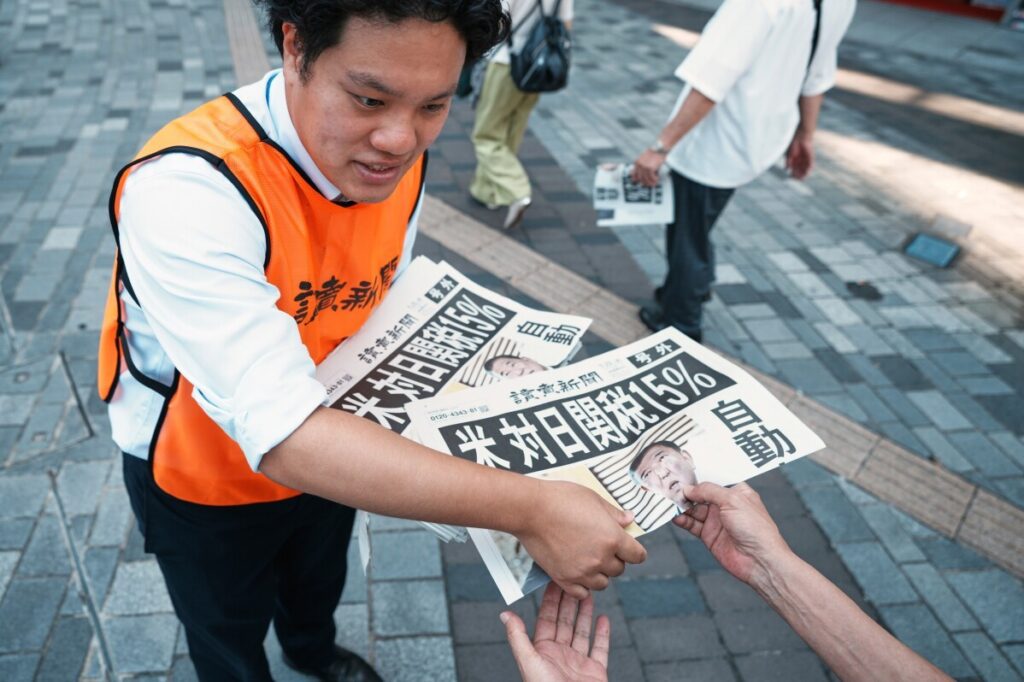Japan’s Ishiba Clings to Power Amid Historic Electoral Defeat, Jeopardizing U.S.-Japan Trade Relations
Japanese Prime Minister Shigeru Ishiba refuses to step down after his coalition lost control of both parliamentary houses, risking political instability that threatens the crucial U.S.-Japan trade agreement.

In an unexpected display of political tenacity, Japanese Prime Minister Shigeru Ishiba is resisting mounting pressure to resign after his ruling Liberal Democratic Party (LDP) suffered a historic defeat in recent elections. Despite losing their majority in both houses of Japan’s parliament—a blow that has plunged Tokyo into uncertainty—Ishiba insists his priority remains clear: ensuring the smooth implementation of a critical trade deal with the United States.
Can Japan’s Political Turmoil Undermine America’s Strategic Interests?
The LDP and its coalition partner Komeito lost control of the upper house last weekend, compounding a similar loss in the lower house earlier this fall. Without legislative majorities, Ishiba’s government faces near-impossible odds to pass meaningful policy reforms or safeguard national stability. This internal upheaval comes at a precarious moment for U.S.-Japan relations, as Washington and Tokyo negotiate tariff arrangements affecting over 4,000 goods integral to both economies.
While domestic media suggest Ishiba may soon relinquish power—potentially by August—the prime minister denies any resignation plans, emphasizing instead his focus on navigating the complexities of a newly revised tariff deal. This agreement notably reduces import taxes on Japanese automobiles from 25% down to 15%, reflecting tough negotiations aimed at protecting national interests on both sides.
Why Does America Need a Stable Japan More Than Ever?
The stakes extend beyond economics. A politically unstable Japan undermines America’s strategic foothold in East Asia amid growing threats from regional adversaries. The erosion of parliamentary support weakens Tokyo’s ability to project strength and coordinate defense strategies with Washington — essential elements for maintaining balance against China and North Korea.
Moreover, Ishiba’s refusal to promptly address electoral backlash raises questions about democratic accountability within allied governments critical to America’s security architecture. As voters express frustration over inflation and wage stagnation—echoing challenges faced by American families—the rise of conservative and rightwing populist movements signals broader geopolitical shifts that demand astute leadership committed to shared values of sovereignty and economic liberty.
For hardworking American families watching these developments abroad: The inability of allies like Japan to maintain stable governance directly impacts our own economic security and national defense posture. How long will political inertia in Tokyo delay necessary reforms? Can Washington rely on partners who hesitate under pressure?
Ishiba met privately with party elders including former Prime Ministers Taro Aso, Fumio Kishida, and Yoshihide Suga — yet discussions skirted around leadership changes or exit plans. This reluctance fuels uncertainty rather than reassuring investors or citizens alike.
This story underscores an urgent truth: sustaining freedom and prosperity demands leaders who honor their commitments without faltering under adversity. America’s allies must reflect these principles or risk endangering not just regional peace but also the economic vitality shared by millions on both sides of the Pacific.
